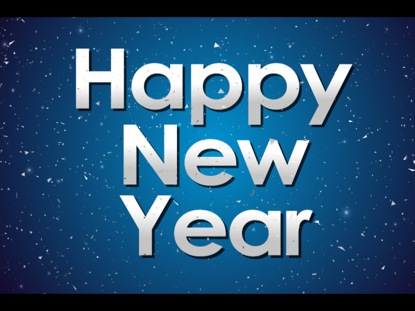 Do you realize that we are now closing on the end of the 1st decade of the 21st century? That fact hit me yesterday as I thought about the end of this year 2010.
Do you realize that we are now closing on the end of the 1st decade of the 21st century? That fact hit me yesterday as I thought about the end of this year 2010.
A lot has changed in the past ten years including the most significant event of the decade in my view, the terrorist attacks against the U.S. on September 11, 2001.
After that day, concepts such as “terror alert levels” and “war on terror” became part of our existence, we are fighting wars on two fronts, and of course air travel changed forever.
Perhaps you are at that point of looking back on the year that is about to end (what went well, what did not go so well). Or perhaps you are more focused on looking forward and working on your resolutions for the new year.
I am not particularly big on New Year’s resolutions although I understand the motivation behind them. You want to do better, you want to accomplish some things, and the beginning of a new year seems like the perfect time for making a change.
However, most New Year’s resolutions are abandoned before the end of March and in some cases even before January runs out.
The problem with most of the resolutions is that they are either too aggressive (e.g., losing 100 pounds by June) or not specific enough (e.g., I want to be a better person this year).
One of the most common areas for New Year’s resolutions is of course money management: saving more money and spending less, paying down debt, saving for the kids’ college, saving for retirement, etc. But if you don’t have specific goals and a specific plan, that desire for change can fail to produce positive results.
So instead of making resolutions for the New Year, I focus on taking steps that will lead me to making permanent changes in my habits. Let me give you an example. For years I have struggled to maintain a healthy weight. Numerous times I have tried with the best of intentions to lose weight and failed miserably.
However, this year I was able to lose 25 pounds. What was the difference? I entered a structured program with specific steps, guidelines, and regular checkpoints to monitor my progress. More importantly, I was held accountable to myself and others for sticking with the program.
With that in mind, over the next few weeks in January I will provide you with specific steps for building a complete Financial Management Plan. This will help you to get started on attaining your goals for this year. At that same time, you will begin to build the healthy habits that will set you up for financial success for years to come.
As we begin that conversation let me ask you the following:
- Are you really ready for trying new ways for managing your finances?
- Are you really ready to sacrifice and do what it takes to change the future of your household?
- Are you really ready to endure the ups and downs that you are likely to experience so you can see this to the end?
As you ponder these questions over the next couple of days let me give you this encouragement: this is not about what has happened in the past. We can learn from our mistakes but we do not need to dwell on them.
We need to move on and look forward to where we are headed and that is to better results with your finances. I promise you that changing your habits for money management will be hard work but it is completely worth it. I can help you get there.
Happy New Year!
“Brethren, I do not regard myself as having laid hold of it yet; but one thing I do: forgetting what lies behind and reaching forward to what lies ahead,”
Philippians 3:13 (NASB)
